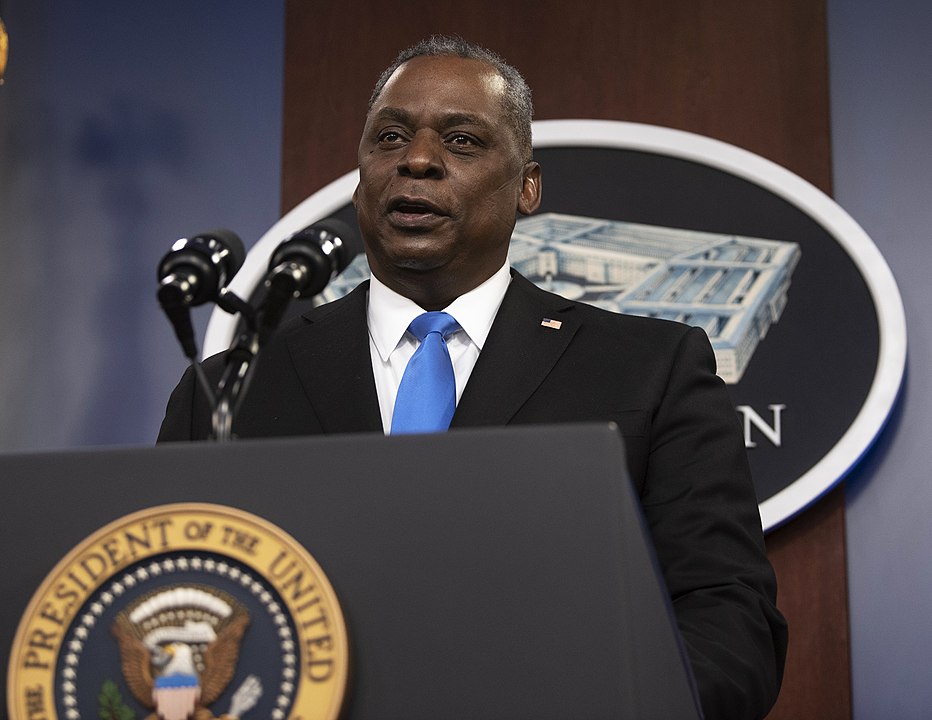News
US to ‘stand by our friends’ amid China’s territorial claims

FILE: Secretary of Defense Lloyd J. Austin III delivers remarks to Department of Defense personnel at the Pentagon, Washington, D.C., Feb. 10, 2021. (DoD photo by Lisa Ferdinando/Wikimedia Commons, CC BY 2.0)
BEIJING – The US will stand by its friends as China adopts a more “coercive and aggressive approach to its territorial claims,” the country’s defense chief said on Saturday.
Addressing the Shangri-La Dialogue in Singapore, Lloyd Austin said China’s expanding fishing fleet in the East China Sea is sparking tensions.
In the South China Sea, China “is using outposts on man-made islands bristling with advanced weaponry to advance its illegal maritime claims,” he said, adding that Beijing continues to “harden its position along the border that it shares with India.”
“Indo-Pacific countries shouldn’t face political intimidation, economic coercion, or harassment by maritime militias,” Austin went on to say.
He said the US “will maintain our active presence across the Indo-Pacific” alongside its partners.
Commenting on Beijing’s tensions with Taiwan, the defense chief said the US remains “firmly” committed to the long-standing one-China policy.
China considers Taiwan a “breakaway province” but Taipei has been insisting on its independence since 1949.
“We categorically oppose any unilateral changes to the status quo from either side. We do not support Taiwan independence,” he said. “And we stand firmly behind the principle that cross-strait differences must be resolved by peaceful means.”
He added: “Our policy hasn’t changed. But unfortunately, that doesn’t seem to be true for China.”
The US official argued that maintaining peace and stability across the Taiwan Strait is not just a US but a matter of international concern.
“So let me be clear. We do not seek confrontation or conflict,” he said. “And we do not seek a new Cold War, an Asian NATO, or a region split into hostile blocs.”
Washington’s focus on Asia-Pacific
Washington in recent years is focusing more on the Asia-Pacific region, shoring up bilateral and multilateral support as it seeks to contain Beijing’s growing influence.
Besides its Five Eyes intelligence alliance (comprising Australia, Canada, New Zealand, the UK and US), Washington also leads a loose regional security group that includes Japan, Australia, and India.
Known as the Quad, the alliance is one of the many ways in which the US has been working to counter China’s expanding military and economic power.
Washington also signed the AUKUS pact last year with the UK and Australia that paved the way for Canberra to acquire nuclear-armed submarines.
It has bilateral military pacts with many countries in Asia-Pacific, including Japan and South Korea, where it has deployed thousands of soldiers and the latest weaponry.
On his first trip to Japan last month, President Joe Biden went as far as to threaten Beijing with military force if it attempts to take over Taiwan by force. (Anadolu)





















